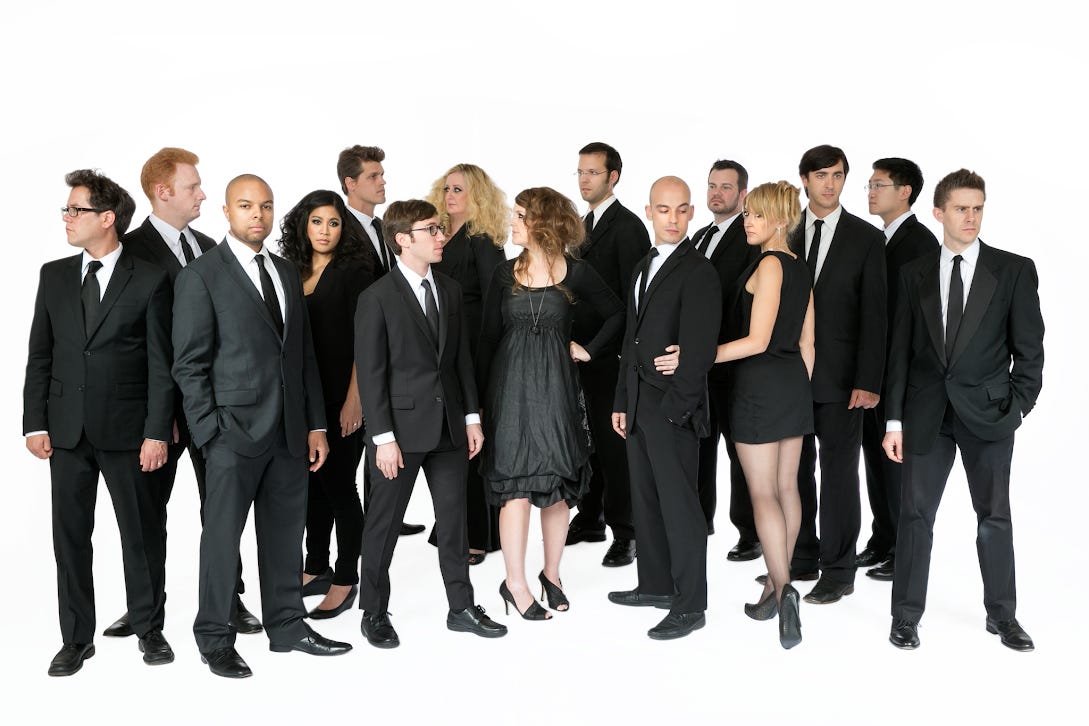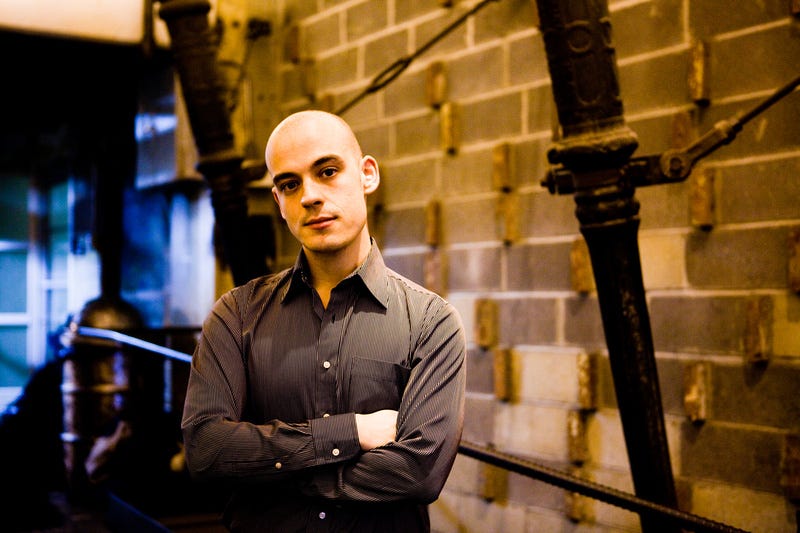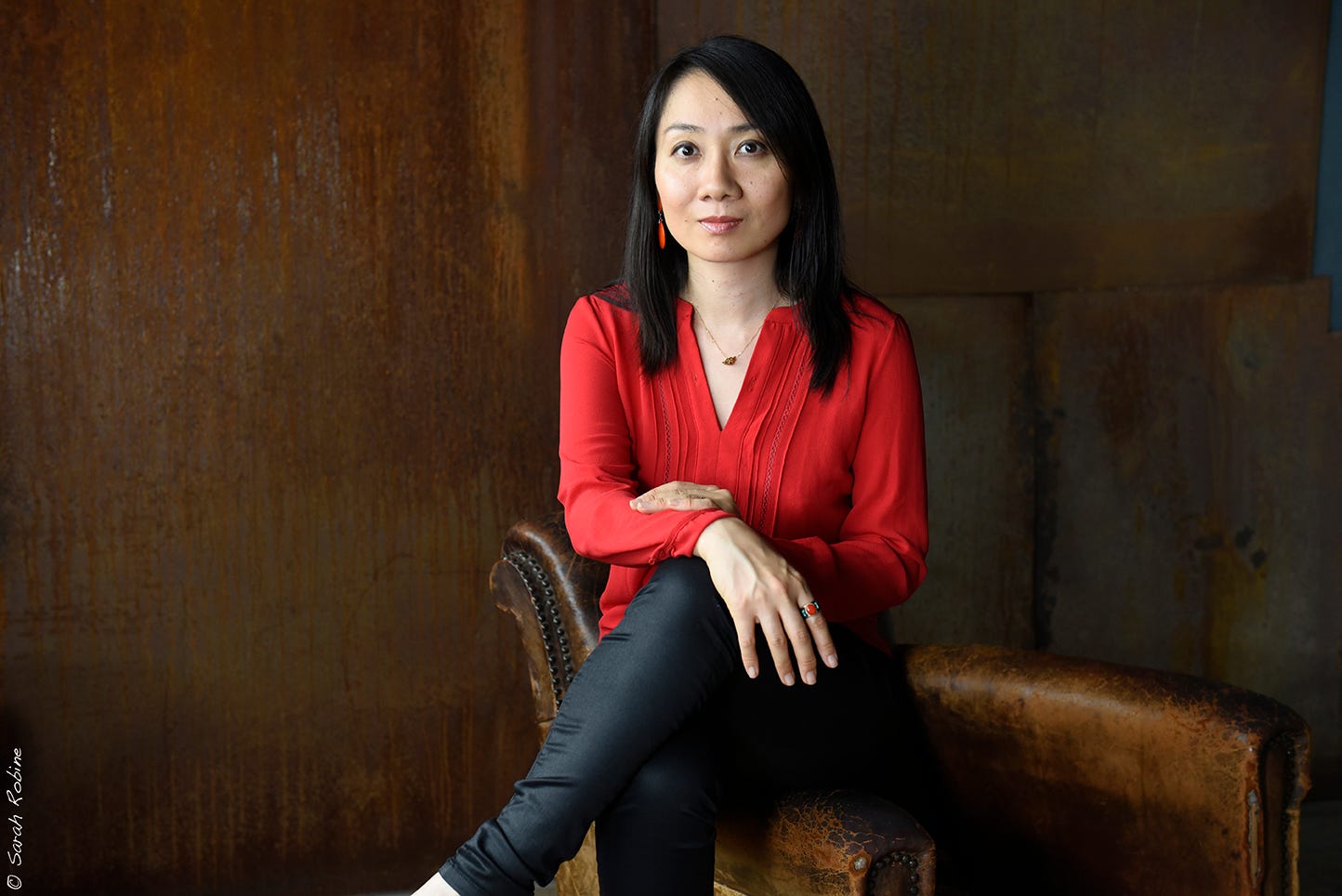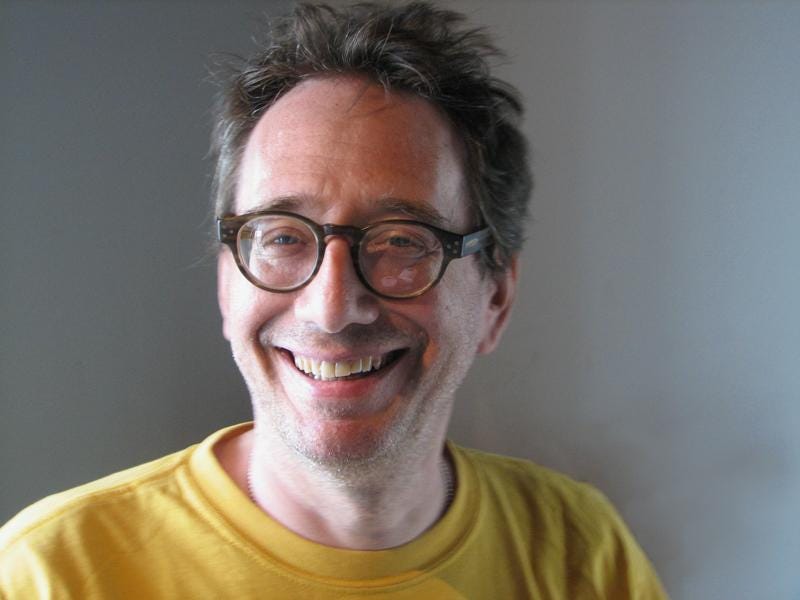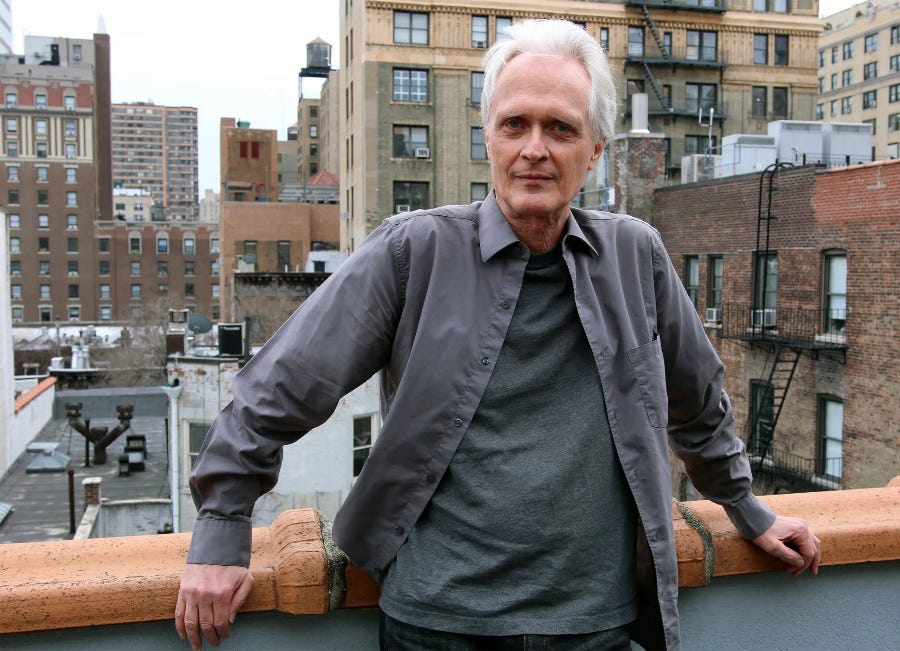Beauty and chaos.
The Talea Ensemble enters its 15th year with an expanded mission… John Zorn and Jesse Harris put on a show… and live music highlights for the next seven days.
Among the many reviews I wrote during my stint as a freelance stringer for The New York Times, one of my favorites followed a concert by the Talea Ensemble at Tenri Cultural Institute. The ensemble, formed by pianist-composer Anthony Cheung and percussionist Alex Lipowski in 2007, had been on my radar from the start for the persuasive precision it brought to championing contemporary composers otherwise underrepresented in New York City—mostly European, some not.
Here’s the opening paragraph:
Befuddlement is a common condition among audience members at concerts of contemporary classical music, probably causing some potential listeners to stay away. But is it really such a bad thing to be confused by how a sound is produced, or to wonder why a piece takes the form it does? To the contrary, a concert presented by the Talea Ensemble at the Tenri Cultural Institute on Friday evening showed how perplexity could charm and delight.
That introduction is pretty wide-open, but it also foreshadowed my own state of delighted confusion in response to one of the pieces on the program.
I can’t recall being as baffled by any recent work as I was by Víctor Adán’s “Tractus,” which opened the program. That is not a complaint. Everything about the piece — its elegant circular score; its fidgety, alien sound world; the ritual sobriety with which it unfolded — was transfixing.
Talea maintained a high profile over the years, but close watchers know a lot has changed. I hesitated to use the eye-catching Beowulf Sheehan PR image you see above, because some of the players depicted are now absent or departed. Violist Elizabeth Weisser Helgeson is Director of Artistic Planning and Administration for the New York Philharmonic. Percussionist Matthew Gold serves as Director of Community Initiatives/PATHWAYS at the buzz-worthy PS21 in Chatham, NY.
Significantly, Talea’s co-founders have moved on as well. Cheung stepped away in 2017 to focus on his fast-rising profile as an in-demand composer. And Lipowski – for many years the ensemble’s face, voice, and guiding light – moved to Europe in 2021 to join the prestigious new-music ensemble Klangforum Wien.
But if you were concerned Talea might fade from view following such departures, a glance at the ensemble’s upcoming agenda dispels any concerns. On the heels of two recent appearances in the Time:Spans festival, the 2023-24 season gets underway this Friday, Sept. 15, with “Shades of Words,” a program of text-inspired compositions by Jessie Cox, Hannah Kendall, Andile Khumalo, George E. Lewis, and Jeffrey Mumford.
Now serving as Talea executive director is Adrian Morejon, a bassoonist admired for his exacting, exciting work not only with Talea, but also in settings ranging from bassoon duo Dark & Stormy and the Dorian Wind Quintet to the Boston Modern Orchestra Project and the Philadelphia Orchestra. Speaking recently by Zoom, Morejon shared his thoughts regarding the transition in process, the season ahead, and an expanded mission going forward.
(This conversation has been edited lightly for clarity and length.)
Steve Smith: You’re starting the new season after a period of significant transition. Before we look ahead, let’s take a moment to catch up.
Adrian Morejon: Definitely. As you can imagine, both with Alex [Lipowski] leaving and the pandemic, there’s been a lot going on. With Alex, I wouldn’t say the writing was on the wall, but he was spending more time in Europe, and we saw that he was less present in person. Things were building up at Klangforum [Wien] for him, and so coming to the end of summer, fall 2021, he let us know that he would be leaving officially. We went through a proper search, and we weren’t finding the right fit for what we were looking for.
Having started many chamber groups, and having done some work on boards, I’d always been interested in more leadership roles. But I was hesitant, based on how the position was defined at a time when we were kind of fumbling to figure out what it would look like—because as you probably remember, Alex did everything. He’s the founder. Obviously Anthony [Cheung], Beth [Weisser], Chris Gross… there was a lot of help. But Alex kind of ran it from the top down, and really did a lot of things.
The idea of me stepping in came up when I saw that things weren’t quite working, and I was concerned about the future of Talea—just making sure that we had a future. My involvement for the past decade has been really important to my career, and a big influence on myself. So I offered to do the position interim, to just see how it would go, trial by fire. And in my first year, we had four international tours, over a dozen to two dozen premieres, all the typical Talea stuff.
When did this transition take place?
I overlapped with Alex in December of ’21. It was mid-season, so that was tricky, too… and, of course, coming out of the pandemic. By January of ’22, I was on my own. It was a very short onboarding, which as you can imagine made life interesting.
The staff is also transitioning. Matt Gold left us in April, because he took a position at PS21 up in Chatham. He’s still performing, so he’s technically on leave, but he’s still a member. [Victoria] Cheah, who had done production in the past, has come back. So my staff with her, [Director of Development and Marketing] Stephanie Liu, Brent Ness helping with bookkeeping—we finally got our team settled by spring of ’22.
That’s the basics of the transition. Coming out of the pandemic, the bigger question was, what does Talea look like, moving forward. Our forte was always being a bridge to European contemporary music of a certain aesthetic, championing that music and bringing it to the U.S. We will continue to do that, but we want to open up, branch out, and bring Talea’s meticulous attention to detail and expressive playing to various styles.
You’ll also note that this season is all in New York. I chose that based on the extensive touring that we did recently during my transition. We have great relationships with all the places we’ve been to in the past. We will return to them. But I wanted to take a season where we really strengthen our home base and work on the repertoire.
What do you view as being uniquely Talea’s mission, and how is that evolving? You’ve said it used to be about a relationship with a certain segment of European composers, but now it’s growing outward. Do you have a sense of what you want the group's identity to be?
I’ll use the past to get into the present and the future, right? In doing what we did with the repertoire that we excelled at, Talea created a style of performance that involved two parts of the spectrum. This attention to detail, this accuracy, in new music sometimes can be subjective, depending on who you're talking to. And Talea always went the extra mile to make sure everything is precisely done the way the composer wants it—no cutting corners. And at the same time, once you have that established, having an expression on top of that.
It was a really thorough approach to interpreting all the scores and bringing to life what the composer had in mind. Because of that, we have a great relationship with our composers. The repertoire that we really excelled at from Europe helped us learn how to do that at a really high level. So there are two elements that I see in the present and moving forward: we want to apply that to a wider range of repertoire – just try to present scores as they really ought to be, and not say, oh, well, that’s not feasible – and then more importantly, we want to have more discussions with more parts of the world about what is going on in new music.
I think of ourselves in the past as an ambassador group working between the U.S. and Europe. So what happens if we become an ambassador group that's going from the world to New York, or to the U.S.? What if we cherish the repertoire that was formative to our existence, but at the same time be like, what's going on in South America? What's going on in Africa? What is going on in Asia?
That’s the move we are trying to make, moving forward. Our connection with people is the most important thing.
The first concert of the season is quite a statement. The website says very clearly, “Our 15th season explores the theme of words in music.” And yes, there is a through line with the three opera projects and the Georg Friedrich Haas/Michael Hersch program. But one cannot miss the fact that these are five prominent Afrodiasporic composers. That in itself is a statement you're making without stating it.
Obviously representation and diversity are major topics today. And speaking as a queer Cuban American musician who has had much privilege passing for white, I think about this often, because I’m not in a position to be too forceful with it, but I’m also in a position where obviously I am an ally. I want to be careful in how I approach this, so I love what you just said: We want to say it without saying it. I don’t want to tokenize anything; I just want it to become part of our general programming.
A big thing I want to put out there is I want Talea to have a sense of transparency in everything that we're attempting to do, and where we want to go. Even our “Shades of Words” program and “That Other Spring,” the program with Hersch and Haas, are very contained within their own programs. So eventually, and you’ll see this later in the spring with our “Written for Talea” and “Ambassadors” programs, and other programs I want to look at in the future, I want it to just be a nice, natural mixing of repertoire and composers—and like you said, not drawing attention to it.
Hersch/Haas is an idea that’s been in the works for a while; I’ve been in touch with [soprano] Ah Young [Hong] for a while about this program. It’s something we felt strongly about presenting. Any seeds or projects I inherited from Alex, I was going to honor, and these conversations started with Alex. I wanted to honor it, so it felt only appropriate that I wanted to respond to that program by making sure the “Shades of Words” program was on our season as well.
Something that’s also kind of a different approach with our programming is I want to look for more threads that go through seasons, try to think more thematically in our seasons. This year, there’s two topics at play. There’s “Words and Voice” throughout the season, which is very apparent. And it’s also our 15th anniversary season, so you'll see prominent works from our past that are going to pop up throughout the season. Finalizing the season was easy once I saw the threads.
This goes back to our discussion and connecting with people: I also want to have more discussion with our audience about the programming, about what is it that we're trying to say each season. Rather than having beautiful contained programs, I'd like them to have a conversation with each other.
Talea is involved in no fewer than three opera projects this season: workshops with Alec Hall and Suzanne Farrin, and La Ville Morte, a very rare and unusual work by Nadia Boulanger with Catapult Opera.
Last season we did [Toshio] Hosokawa’s Hanjo with Catapult Opera, so this is part of that collaboration—the discussions for that started with Alex, that these two operas in particular would be a collaboration between Catapult and Talea. We’re really looking forward to it. The score didn’t quite survive, and it was finished later. It goes along with our looking outside our past repertoire, and I think Boulanger is a great addition. It’s also a lot earlier than our usual repertoire—we’re really excited to explore it, and to see the influences that she had on a lot of the composers who we work with today.
The programs with Alec Hall and Suzanne Farrin are works in progress. Where do they stand now, and where are they headed?
Suzanne Farrin’s opera is already set to premiere in São Paulo in July of 2025, so we are working toward that premiere and subsequent performances in North America. With Alec Hall, we’re setting down the premiere details, so that would be more ’25–’26… or ’24–’25 at earliest, but more realistically ’25–’26. Mm-hmm.
The idea behind the workshops is really showing our audiences the collaboration process. And we’re going to incorporate a little discussion with the composers on what is it like to be at the stage of writing an opera, and how do these workshops help you edit your direction or make changes along the way. So it’s really exciting to not only be having these projects in our near future, but also using them as a way to show insight to our audiences on a new process, and trying to have more conversation with the composers just to share some of this insight.
What’s the concept behind the “Ambassadors” initiative, and how is it manifest in the French program coming up this season?
It’s a combination of our “Talea Access” project – the idea of how do we create access for composers who maybe don’t have access to groups like Talea, or resources to get their music out into the world – and our connection with Europe, and how do we go from there? That’s why France became our first country to focus on. Sanae Ishida was a composer who applied for our emerging composers commissioning application and was one of our finalists.
Something we love about the application process for both the emerging composers commission and the recording workshops – two elements of the “Talea Access” project – is that we’re getting to learn the music of composers that are all over the world and aren’t as known. So we’re already creating a database of the next generation of composers. Since it’s already been several years since our first application process, we’re getting to look back and find ways to collaborate with some of these composers.
So Sanae, who lives in France now… we reached out to her, and with the support of the FACE Foundation we were able to commission her for this program. So you can see there a couple of angles that helped us to define what the “Ambassadors” project would look like this year: focusing on France, a country that we already have a relationship with from previous years, we have a composer who we learned of her music and are excited to work with, and the FACE Foundation was happy to support us in this. So the idea is to get a little insight on her perspective of what’s going on in the scene in France with new music, find some other guests to speak with us, perhaps in a podcast, and try to really explore what the environment is looking like.
In future years we would like it to be a two-way program, where we commission a composer from the country of the year, we bring them to New York, we’re discussing what’s going on in their country, and then we also try to take Talea to their country, so that way we finish the conversation. That will take a couple years to realize, but we already have plans for it in future seasons.
It seems almost unfair to ask, now that we’ve unpacked a very thick season that has so many things to offer. But as Talea returns to its full stride, what would you like to see happening in future seasons?
My personal answer is, I want to create an organization that continues to grow, and continues to reach out to its audience fully and thoroughly. And I want to see it set up in a way that when I am no longer doing this position, it continues to survive on its own.
Artistically, I’d like to see the results of a stronger New York presence—and also, although we had done some domestic touring, more of a national presence, and then reaching out to various parts of the world, and international presence. I feel like Talea’s overdue for just getting some recognition for the hard work that Alex and the ensemble put in for 15 years.
I want to see it reap the benefits of it a little bit, but also just be more of a voice in the conversation of where’s new music going today—and, in that process, for us to learn from various perspectives what is the direction of new music today? So once again, it’s a two-way street.
The Talea Ensemble presents “Shades of Words” at JACK NY, 20 Putnam Ave., Brooklyn, on Friday, Sept. 15 at 8pm; $20, seniors and students $10. Tickets available on Eventbrite.
"We prefer pieces that play with the style and format of traditional profiles," the kind folks at National Sawdust told me when I agreed to write a preview story ahead of Love Songs, the new off-Broadway music-styled show by John Zorn and Jesse Harris that has its premiere performances at the Brooklyn venue on Saturday, Sept. 16, and Sunday, Sept. 17.
Love Songs is a delicious piece, with gorgeous music by Zorn and stylish lyrics and book by Harris, and it'll be deliciously performed by singer Petra Haden with pianist Brian Marsella, bassist Jorge Roeder, and percussionist Ches Smith. I look forward to seeing the fully cast and staged version due for production at The New School sometime in 2024.
This current engagement is part of an ongoing year-long global celebration of Zorn's 70th birthday, which also includes further events at Roulette and Miller Theatre, and in Boston and Minneapolis. You'll find links in my preview, in the paragraph that starts "The setting is National Sawdust…"
And don't miss the interview Rebecca Slaman conducted with Jesse and Petra, also on the National Sawdust website. Beauty and chaos, indeed.
National Sawdust hosts Love Songs by John Zorn and Jesse Harris on Saturday, Sept. 16, at 7:30pm and Sunday, Sept. 17, at 3pm, $35; nationalsawdust.org
Hear more by John Zorn on Thursday, Sept. 14 at Roulette, and Thursday, Sept. 21, at Miller Theatre, Columbia University.
Night After Night Watch.
Concerts listed in Eastern Standard Time.
14
The Village Trip Guitarfest I: “Bowery Haunt”
Loft 393
393 Broadway, Tribeca
Thursday, Sept. 14 at 7pm; $25–$30
thevillagetrip.com
Presented under the banner of the freewheeling, polystylistic Village Trip festival, “Bowery Haunt” is named for a composition by Scott Johnson, and pays tribute to that groundbreaking guitarist and composer, who died in March. Johnson’s work will be played by the guitarists for whom it was written, William Anderson and Oren Fader. The program also features chamber works by Frank Brickle, Christian Carey, Marti Epstein, Gary Philo, and Amy Reich, and ends with a guitar orchestra arrangement of David Amram’s score for Splendor in the Grass. (For more new-music events happening in the Village Trip series, including two more Guitarfest events, look here.)
15
Ellen Arkbro
Church of St. Luke and St. Matthew's
520 Clinton Ave, Brooklyn
Friday, Sept. 15 at 7:30pm; $25
blankforms.org
Swedish composer, performer, and sound artist Ellen Arkbro whose work investigates unconventional intonation, duration, and sonority, presents the local premiere of a substantial new organ work, Sculptures.
17
Numinous
Roulette
509 Atlantic Ave., Brooklyn
Sunday, Sept. 17 at 8pm; $30, advance $25, seniors and students $20
roulette.org
Composer Joseph C. Phillips Jr. leads his stylish, versatile ensemble, with sopranos Rebecca L. Hargrove and Ariadne Greif, in excepts from So Far Behind Now Because Then, the first opera in his projected cycle of works based on The 1619 Project. The program also includes works by George Brandon, Anthony Branker, Bob Goldberg, and Steven Swartz.
18
“Counterpoint: Reich”
Barclays Center
620 Atlantic Ave, Brooklyn
Monday, Sept. 18 at 7:30pm; free admission
The organizers of “Counterpoint: Reich,” presented by businesswoman, activist, and philanthropist Clara Wu Tsai and the Social Justice Fund, deploy three landmark works by Steve Reich to alter perceptions about what kinds of events might happen in a downtown Brooklyn public space. New York Philharmonic principal clarinetist Anthony McGill will lead a star-studded clarinet choir in New York Counterpoint, cellist Lester St. Louis guides an octet in Cello Counterpoint, and electric-guitar quartet Dither is at the center of a guitar orchestra for Electric Counterpoint.
UPDATE Sept. 18, 1pm: Due to inclement weather, this outdoor event is now happening in the Barclays Center lobby.
19
“Morton Feldman Returns to Eighth Street”
New York Studio School
8 W. 8th St., Greenwich Village
Tuesday, Sept. 19 at 6:30pm; by donation
RSVP at eventbrite.com
Violinist Miranda Cuckson and pianist Conor Hanick presents a succinct (yes, really) program of compositions by Morton Feldman, dean of the New York Studio School from 1969 to 1971. Despite its brevity, the program spans a range from the early, brittle Extensions 1 (1951) to the more enigmatic maturity of Spring of Chosroes (1977).
For even more listings, see the Night After Night Watch master list, here.
Thank you.
(Photographs by the author, except where indicated otherwise.)

